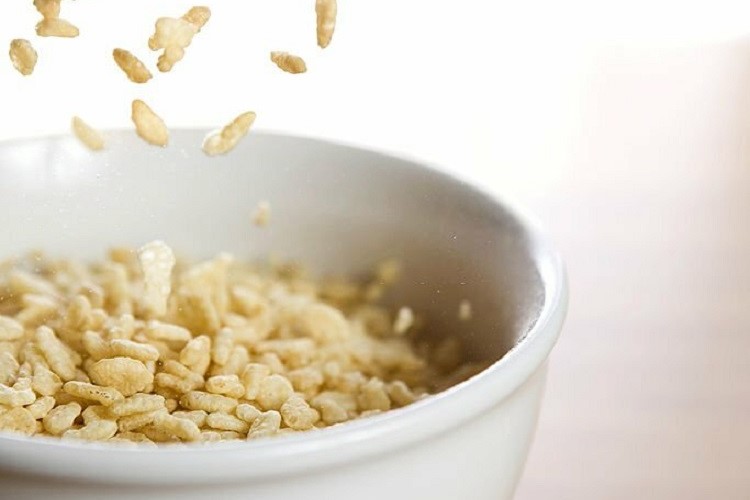The safety and nutritional quality of baby food are critical considerations for parents and caregivers as they embark on the journey of nourishing their little ones.
However, recent concerns have arisen regarding baby food with heavy metals, such as arsenic, lead, cadmium, and mercury.
These heavy metals can find their way into baby food through various environmental sources, posing potential health risks for infants and young children.
Understanding the implications of heavy metal exposure in baby food (such as rice cereal & fruit juice) and adopting strategies to mitigate these risks is crucial for ensuring the well-being and healthy development of our youngest members of society.
In this article, we will explore the presence of heavy metals in baby food, their potential health effects, and proactive measures to minimize exposure, empowering caregivers with the knowledge needed to make informed choices for the best start in their child’s nutritional journey.
Table of Contents
- Baby Food With Heavy Metals
- How to Lower Baby Exposure to Heavy Metals
- Points To Consider Regarding Heavy Metals in Baby Food
- Conclusion
Baby Food With Heavy Metals
Recent reports have raised concerns about the presence of heavy metals in baby food.
The levels of arsenic, lead, cadmium, and mercury found in some baby food products have been found to exceed the limits set by the U.S. Food and Drug Administration (FDA) and can pose a serious health risk to infants.
These metals can accumulate in the body over time, leading to health problems such as developmental delays, decreased IQ, and even cancer.
The levels of these heavy metals in baby food vary by brand and type, and it is important for parents to be aware of the potential risks and to take measures to minimize their exposure.
This has prompted calls for stricter regulations and better testing to ensure the safety and well-being of our youngest and most vulnerable population.
Here are some examples of baby food that have been reported to contain elevated levels of heavy metals:
1. Rice Cereal and Rice-Based Products

Rice absorbs arsenic from the environment more readily than other grains.
Arsenic is an element that occurs naturally in soil and water.
Rice cereal, a common first food for babies, is often made from rice grains and may contain higher levels of arsenic.
Arsenic is a concerning heavy metal due to its potential adverse effects on neurological development and other health issues.
2. Rice Puffs and Rice Snacks
Similar to rice cereal, rice-based snacks like rice cakes and rice puffs can also contain elevated levels of arsenic, especially if made from brown rice.
These snacks are popular choices for babies and toddlers, making it essential to consider alternatives or limit their consumption to mitigate arsenic exposure.
3. Teething Biscuits
Teething biscuits, often used to soothe teething discomfort, can contain rice flour as a significant ingredient.
As mentioned earlier, rice has a propensity to accumulate arsenic, and thus, teething biscuits made with rice flour can potentially contribute to arsenic exposure in infants during a critical stage of their development.
4. Fruit Juices

Fruit juices, particularly apple, grape, and pear juices, have been found to contain elevated levels of arsenic and lead.
Arsenic can be absorbed from the soil and water where the fruits are grown. Lead can come from various environmental sources, including soil and water contamination.
Regular consumption of such juices may contribute to the intake of these heavy metals, which can be harmful to a child’s developing nervous system.
5. Sweet Potatoes and Carrots
Sweet potatoes and carrots are root vegetables that may absorb heavy metals like lead and cadmium from the soil they grow in.
These heavy metals can contaminate the vegetables and end up in baby food products made from sweet potatoes or carrots.
It’s important to source these vegetables from areas with lower levels of heavy metal contamination.
6. Fish and Seafood-Based Baby Foods
Certain types of fish and seafood can contain mercury, a heavy metal that poses risks to the nervous system, particularly in developing fetuses and young children.
Baby foods containing fish or seafood can introduce mercury into a child’s diet, necessitating caution and moderation in consumption.
Understanding these potential sources of heavy metals in baby food is crucial for parents and caregivers.
It allows for informed choices, including diversifying the baby’s diet with a range of foods and being mindful of the types and sources of ingredients used in baby food products.
Monitoring and regulating heavy metal exposure is essential for supporting a child’s healthy growth and development.
Below is a table of some of the baby food products that the Healthy Babies Bright Futures (HBBF) report indicated for high in arsenic, lead, cadmium, and mercury.
| Baby foods | Arsenic | Lead | Cadmium | Mercury |
| Gerber | Rice Cereal Single Grain, Puffs, Puffs Blueberry Crawler, Oatmeal Single Grain | Sweet Potato Supported Sitter 1st Foods (19.6 ppb) | Carrot, Natural for Baby, Sitter 2nd Foods, Oatmeal Single Grain, Supported Sitter 1st Foods (15.3 ppb) | |
| Kroger | Original Oats Instant Oatmeal (30.9 ppb) | Rice Long Grain Enriched (139 ppb), Oats 100% Whole Grain Quick 1 Minute (19.6 ppb) | ||
| Happy BABY | Puffs Organic Grain Snack Sweet Potato & Carrot (318 ppb), Teether Crackers Organic (Strawberry, mango, Pumpkin & Blueberries and Purple Carrots) | Teether Crackers Organic Strawberry & Beet (13.4 ppb) | ||
| Earth’s Best Organic | Rice Cereal Organic Iron Fortified (109 ppb), | Rice Cereal Organic Iron Fortified (16.4 ppb) | Rice Cereal Organic Iron Fortified (44 ppb) | |
| Essential Everyday | White Rice (182 ppb), | White Rice (20.2 ppb) | White Rice (3.7 ppb) | |
| O Organics | Puffs Purple Carrot and Blueberry (118 ppb) | Puffs Purple Carrot and Blueberry (22.8 ppb) | Puffs Purple Carrot and Blueberry (96 ppb), Toasted O’s Cereal (16.9 ppb) | |
| Quaker | Rice Cakes Lightly Salted 100% Whole Grain (196 ppb), Rice Cakes Lightly Salted (187 ppb) & Rice Cakes, Butter Popcorn | Rice Cakes Lightly Salted (18.9 ppb) | Rice Cakes, Butter Popcorn (3.6 ppb), Quaker – Rice Cakes Lightly Salted 100% Whole Grain (3.4 ppb) | |
| Hyvee | Rice Cakes Whole Grain Salted (302 ppb) | Rice Cakes Whole Grain Salted (4.8 ppb) | ||
| Mahatma | Rice, Whole Grain Brown (203 ppb) | Rice Whole Grain Brown (19.4 ppb) | Rice, Whole Grain Brown (3.7 ppb) | |
| Wegmans | White Rice Jasmine Organic (139 ppb) | White Rice Jasmine Organic (4.1 ppb) |
Baby Foods With Low-Level Contaminant With Heavy Metals
Baby foods least contaminated with toxic metals (in order of least contaminated according to HBBF report:
- Bananas
- Grits
- Apples
- Pork
- Eggs
- Green beans
- Oranges
- Watermelon
- Branded Meats
- Butternut Squash
- Lamb
- Yogurt
- Grapes, cut into smaller pieces
- Unsweetened applesauce
- Peas
- Infant formula
How to Lower Baby Exposure to Heavy Metals

Although baby foods contain low levels of heavy metals, there are steps you can take to reduce them even further:
- Give your baby a variety of healthy foods: Your baby’s exposure to heavy metals can be reduced by eating a balanced diet. Rotating your child’s foods is important even if your baby eats organic food.
- Don’t only give infant rice cereal: You can also feed your baby oatmeal, barley, quinoa, and multigrain cereals.
- Don’t give your baby fruit juice: Heavy metals can be present in some fruit juices, and juice is not recommended for children under a year old as it can cause cavities and weight gain. Formula or breast milk is best for infants, and water and milk are best for older children. Instead of juice, give your baby fruit since it contains more fiber and nutrients.
- Keep giving your baby carrots and sweet potatoes: You should serve them along with other fruits and vegetables because they contain important nutrients.
- Go for white basmati rice and sushi rice when making rice dishes: Using these types of rice will lower the amount of arsenic in your food. Rinse rice thoroughly before cooking, cook rice with plenty of water, and drain the extra water afterward. This will reduce the amount of arsenic in your food.
- Avoid using teething biscuits: Give your baby a cold (not frozen) teether or wet washcloth instead.
- Limit baby food snacks, including rice puffs and oat ring cereals: Puréed, mashed, or soft foods rich in nutrients, such as fruit, vegetables, eggs, cheese, or yogurt, should be given to your baby instead of processed snacks. Providing your baby with rice-free or multigrain snacks will also help him eat less sugar, salt, and refined flour.
- Test your water: Lead pipes may contaminate tap water with lead, while well water can contain lead and other heavy metals.
Read Also:
- Baby Food Brands To Avoid
- Toddler Likes To Eat Rice
- Baby Foods To Start With At 6 Months
- Healthy & Easy Foods For Extremely Picky Eaters
- How To Make Avocado and Banana Puree for Baby
Points To Consider Regarding Heavy Metals in Baby Food
Here are some key points to consider regarding heavy metals in baby food
1. Regulations and Standards
The U.S. Food and Drug Administration (FDA) has set limits on the levels of certain heavy metals in various foods, including baby food. However, these limits are not legally binding and are considered guidance.
2. Common Contaminants
Arsenic, lead, cadmium, and mercury are often found in foods like rice, fruits, vegetables, and fish.
Rice and products made from rice, such as rice cereal, are particularly known to contain higher levels of arsenic.
3. Baby Food Concerns
Some studies have found concerning levels of heavy metals in certain baby foods, including rice-based cereals, teething biscuits, and fruit juices. Rice tends to absorb arsenic from the soil more than other grains.
4. Diversifying the Diet
To reduce exposure to heavy metals, experts recommend diversifying a baby’s diet and not relying heavily on rice-based products. Including a variety of grains, fruits, vegetables, and proteins can help.
5. Homemade Baby Food
Some parents choose to make their baby food to have more control over the ingredients and minimize exposure to contaminants.
Using a variety of fruits, vegetables, and grains can help reduce reliance on a single source.
6. Consult a Pediatrician
If you have concerns about heavy metals in baby food or your child’s diet, it’s important to consult a pediatrician. They can guide appropriate foods and feeding practices.
7. Stay Informed
Stay updated on the latest information and guidelines from reputable sources such as the FDA and the American Academy of Pediatrics.
8. Label Reading
Check labels for rice and rice-based ingredients in baby food and opt for alternatives when possible.
Also, avoid using products that list rice syrup, rice flour, or brown rice syrup as ingredients.
It’s essential to strike a balance between providing nutritious food for your baby and minimizing potential exposure to heavy metals.
If you have specific concerns about heavy metals in baby food or need tailored advice, consulting with a healthcare professional is always a good idea.
Conclusion
The presence of heavy metals in certain baby food products is a concerning issue that necessitates vigilance and informed decision-making by parents and caregivers.
Arsenic, lead, cadmium, and mercury, among other heavy metals, can find their way into baby food through various sources, including the soil, water, and ingredients used in production.
These metals pose potential health risks, particularly to the developing nervous system of infants and young children.
Baby food with heavy metals includes rice cereal and rice-based snacks, fruit juices, teething biscuits, sweet potatoes, carrots, and fish or seafood-based baby foods.
Rice products, in particular, stand out due to their tendency to absorb arsenic from the environment
To mitigate heavy metal exposure, diversifying a baby’s diet with a variety of grains, fruits, vegetables, and proteins is essential. This approach helps minimize reliance on a single source and provides a broader spectrum of nutrients.
Additionally, opting for alternatives to rice-based products and reducing consumption of fruit juices and fish-based baby foods can contribute to lowered heavy metal intake.
Ultimately, staying informed about the risks associated with heavy metals in baby food and working closely with healthcare professionals can guide parents and caregivers in making well-informed dietary choices for their little ones.
By prioritizing safe and nutritious feeding practices, we can ensure a healthy and thriving start for our children.
